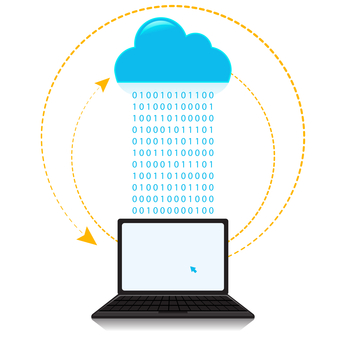The cloud is fast becoming the hottest trend in information and data storage. The cloud service market was a $131 billion industry in 2013, and it’s predicted to continue to grow. Whether an individual is storing personal documents and photos in Dropbox or an organization needs a secure place to manage their company sales data, cloud storage is growing as the “mega-trend” technology for corporations and individuals to maintain 24/7 instant access to all their data.
Cloud capability has been around for some time, but only recently has it exploded into the IT juggernaut we see today. Organizations that used to maintain their data on their own servers have found that storing data on the cloud is a more cost-effective and secure option. The advantages they have found by converting to cloud storage include:
- Instant access to information from any computer anywhere.
- Automated regular backup of files.
- Secure and encrypted storage.
- No worry about hard drive crashes destroying critical files.
- No need to keep an IT staff on site to maintain physical servers.
- Unlimited file storage capabilities.
- No need to constantly upgrade systems and purchase more storage and hardware.
The cloud world serves three main IT functions: services, processes and data. Within these functions, the cloud offers a range of services: storage as a service, information processes as a service, applications, platform, integration, security, management/governance, testing and infrastructure.
When looking around for a cloud storage service provider, you want a reliable, stable company with a solid reputation that will not quickly “evaporate.” You want a system with a consistent uptime of at least 99 percent. You want excellent customer service and technical support. You want a system that allows you to sync your files from one device to another, from your laptop to your tablet to your phone. Finally, you want a system that is user-friendly. In addition to these requirements, look for cloud products that offer apps and features that suit your particular needs.
These days, just about all systems operate across all platforms—PC, Mac, Android, Linux, iPhone, iPad and Blackberry. The differences between the top cloud storage companies vary in the amount of encrypted security they offer: the amount of data storage (ranging anywhere from 4GB to 5TB to unlimited storage), whether they have file sharing capabilities, the level of customer service and finally the annual cost. Below is a list of just a few of the top cloud storage companies on the market today.
- JustCloud: You can purchase unlimited storage and it has automatic backup. It even has a lost laptop locater service. JustCloud has received consistently high ratings from consumers. It’s free to download the software. To get more data storage, plans start at $4.49 per month for 75GB, which is considerably less expensive than some of the other providers.
- LineDrive: Useful for both home computers and business systems, plans offer as much as 2TB of memory and what is called “military grade” security. LineDrive also offers apps to watch movies and listen to music directly off the cloud. Reviews are rather mixed, but are overall positive. Starting at $15.95 a month for 2T, it’s somewhat pricey but it does offer a money back guarantee.
- CrashPlan: Has 448-bit encryption on all their plans, which range from 50GB of storage to 4T. Customer service is available 24/7, and you can access the service via chat, email and phone. However, it does not come with file sharing capabilities. The individual plans start at $3.96 a month with a four-year subscription.
- ZipCloud: Useful for business or personal storage. It starts with a limited free service, and then has inexpensive plans starting at $3.96 a month for unlimited data, and $8.96 for a family plan, with the ability to sync all devices, plus a backup service. Business plans also are available.
- SugarSync: Easy to use and install; offers between 30GB and 500GB of data. Individual plans start at $7.49 a month or $74.99 a year, for 60GB, and go up to 1,000GB for $55/month, or $550/year.
- Dropbox: Free up to the first 2GB of data, but this runs out fairly quickly. With referrals, and other activities, you can earn up to 16GB of free memory. Paid plans start at $9.99/month, or $99/year for 100GB. Primarily a file-sharing system, it allows multiple users access to files. It’s one of the simpler systems to use and set up.






